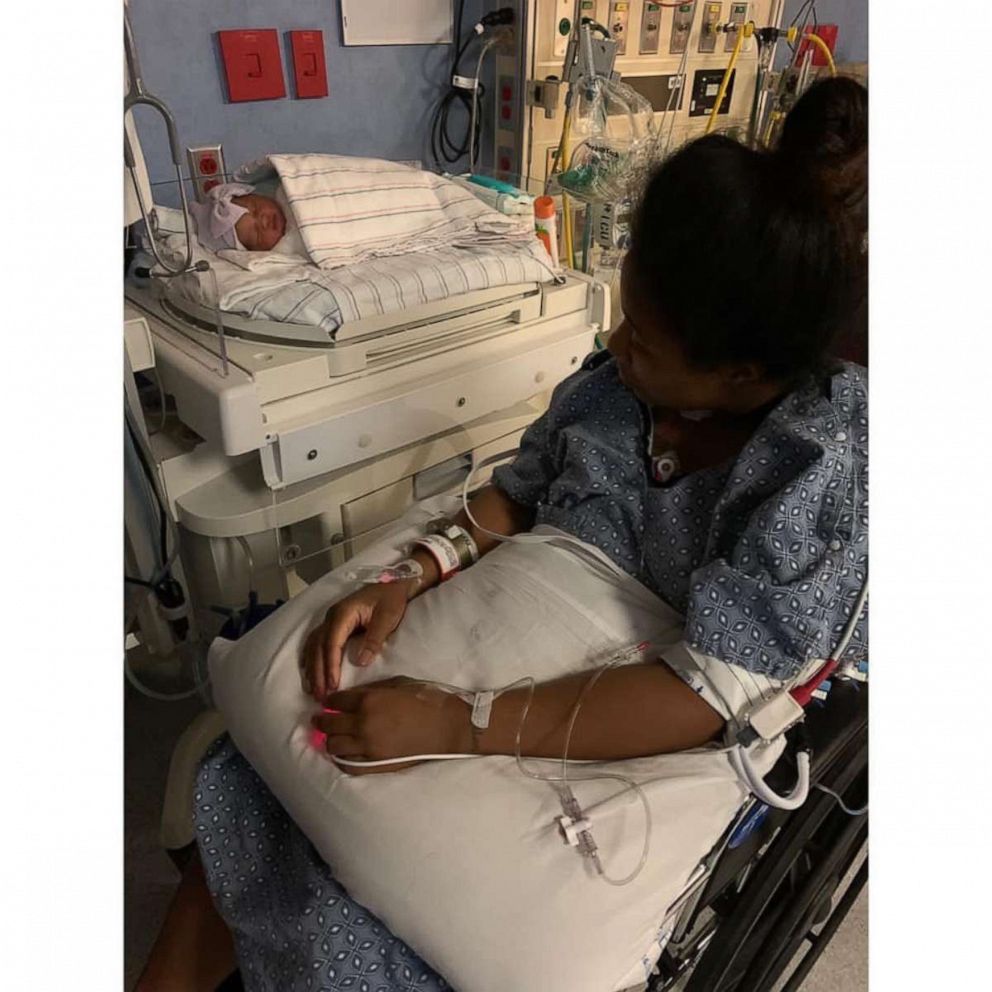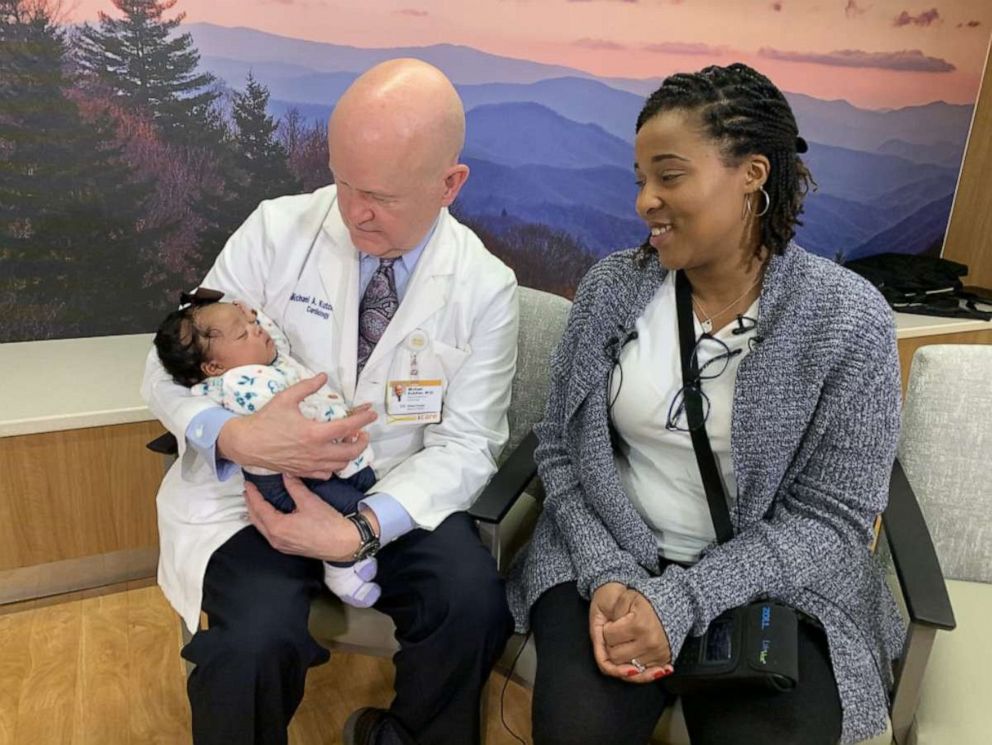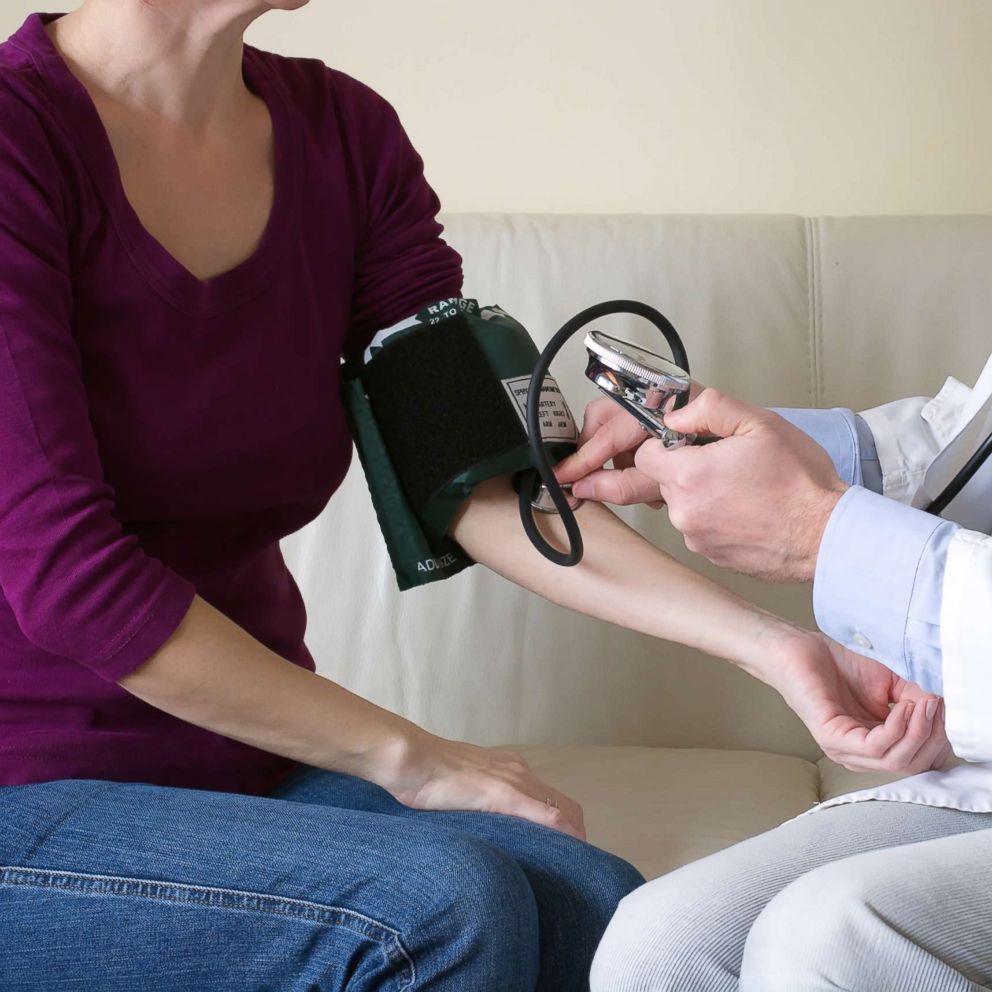I had a heart attack while pregnant. Here's what I want other women to know
"I would have never thought that I was having a heart attack, never."
Brittany Little was 34 weeks pregnant with her third child last November, when she started having difficulty breathing.
The then-29-year-old social worker first attributed the difficulty to her pregnancy and thought maybe it was asthma kicking in.
Little, of Hickory, North Carolina, was planning to go to dinner with her husband and in-laws when her mother-in-law said Little should go to the emergency room first.

Within 30 minutes of arriving at her local hospital's emergency room, Little, who had no prior heart condition, was diagnosed with a heart attack.
"My chest didn’t hurt. I wasn’t clinching or holding onto my chest. I didn’t pass out. I just could not catch my breath," Little told "Good Morning America." "I would have never thought that I was having a heart attack, never."
Little, also the mom of two young sons, suffered a spontaneous coronary artery dissection, or SCAD, a condition that occurs when a tear forms in a blood vessel in the heart.
SCAD has no known cause and usually strikes women who are otherwise healthy. It is also shown in studies to occur more often in women experiencing hormonal shifts, especially women who are postpartum and women who are "experiencing or close to a menstrual cycle," according to the American Heart Association (AHA).
Little, now 30, was quickly transferred to a nearby hospital where she had an emergency stent put in. During that procedure, Little suffered cardiac arrest and was shocked twice through paddles to regulate her heartbeat.
After nearly five hours at that hospital, Little was transferred again, this time to Wake Forest Baptist Health, in Winston-Salem, North Carolina, where specialized doctors could both treat her heart condition and deliver her baby girl.
"At the time all I could think was I did not want to die and that was something that was constant in my head," Little said. "I didn’t know what to think or how to process what was going on."
A team of doctors from three different specialties at Wake Forest Baptist Health spent the next few days keeping Little stable and figuring out how to both safely deliver her baby and keep her alive.
"It was a constant balance between making sure Brittany was stable and could carry her baby as long as possible and making sure that the baby was stable," said Dr. Michael A. Kutcher, a professor of cardiovascular medicine at Wake Forest Baptist Health. "The baby was 34 weeks and we wanted to buy more time."
"The complicating factor was if we did anything to help the mother’s heart, like a blood thinner or a device to help her circulation, that would affect the baby, and if the mother went into labor, that would affect her heart," he said.
Kutcher and a team of cardiologists and OBGYNs saw that Little's heart was not improving so they decided to perform a cesarean section to prevent her from going into spontaneous labor. They performed the C-section on Little in the hospital's hybrid cardiac catheterization lab, where they could perform "advanced cardiac intervention" if needed, according to Kutcher.
The C-section went smoothly and Little's daughter, Nova, was born healthy, weighing 6 pounds, 9 ounces.

"We almost never hear [a newborn's cry] in the cath lab," said Kutcher. "It was like music to everybody’s ears. It was a very moving moment for everybody associated with the case."
Little was under anesthesia during the procedure and did not get to see her newborn daughter until the day after her Nov. 8 birth. Nova was treated in the NICU because she was born premature, and Little was taken back to the cardiovascular ICU after giving birth.
"I didn’t see her being born, didn’t get to hear her cry and didn’t get skin-to-skin with her," said Little. "There was a lot that I missed out on that I hate that I missed out on, but it was the best decision that was made for not just her life but my life too."
Little and Nova are both now home and recovering. Nova is a healthy, happy baby, according to her mom.
Little, who was also not able to breastfeed her daughter, is still recovering both emotionally and physically from her heart attack. She continues to be closely monitored by Kutcher and the medical team at Wake Forest Baptist Health -- including wearing a wearable defibrillator -- as her heart struggles to regain its strength.
"It’s not like there’s just some cure for the heart," Little said. "This is something I’m going to have live with and watch and address for the rest of my life and I’m only 30. My life, to me, is just beginning."
LIttle is speaking out about her experience in the hope of educating other women.

SCAD occurs most often in otherwise healthy people between the ages of 30 and 50. It also affects women much more often than it does men, according to the Cleveland Clinic.
It is the most common cause of pregnancy-associated heart attack and typically occurs within the first month postpartum, research shows.
Since women who experience SCAD typically have no previous heart condition, it is especially important they recognize the warning sings, which include chest pain or pressure, shortness of breath, heavy sweating and dizziness, according to the American Heart Association.
Little experienced the last three symptoms -- shortness of breath, heavy sweating and dizziness. The fact that she got to the emergency room so fast likely saved both her life and her daughter's, according to Kutcher.
"It was lifesaving for her to go and be evaluated promptly," he said. "The best message for women is if something just doesn’t feel right with your pregnancy or you’re having chest pain or shortness of breath, don’t delay going to the emergency room to get it checked out."

Little has found help for herself emotionally through a local support group for SCAD survivors, all women. She hopes other women who see her story are reminded to take care of themselves too.
"Before I would not go to the emergency room or the doctor unless I absolutely had to," she said. "Now, I’m not taking that chance."







